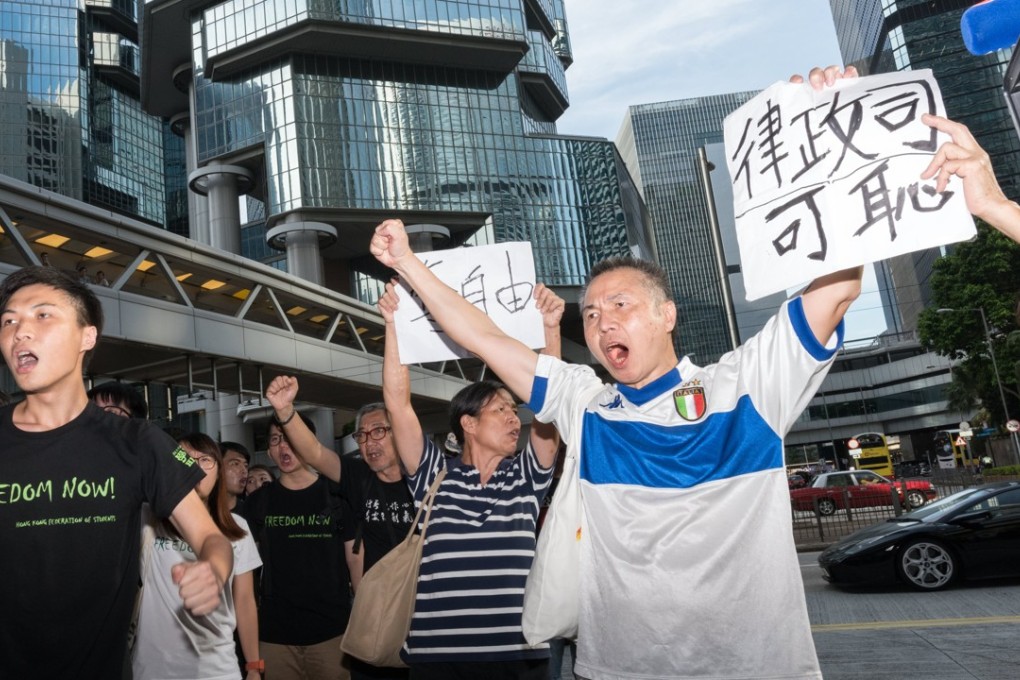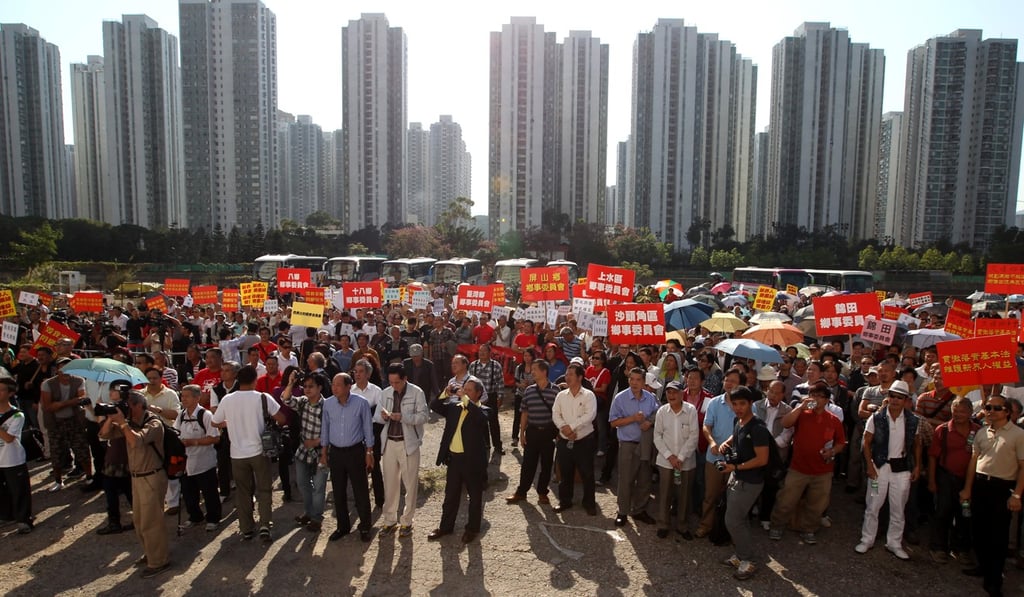Go directly to jail: how Hong Kong courts are teaching a lesson on the rules of the game
Philip Bowring says social order and political stability have been ensured for the city, with student activists jailed, the opposition decimated, business as usual for vested interests, and resolve demonstrated to higher powers

Hurrah! Hong Kong is one step further towards matching Singapore’s standard of judicial independence. The punishment should not be designed to fit the crime but to teach lessons, and enable the teacher to demonstrate resolve to the headmaster.
‘No political motive’ behind seeking jail terms for student protesters
There can be no greater threat to social order and political stability than for spoiled youths to stir up opposition to progress and profit, joining with ignorant New Territories villagers who stand in way of the future, as though their crumbling old houses should be favoured over a Great Leap Forward for the Pearl River Delta region.
Watch: Three student leaders jailed for storming Civic Square
These counter-revolutionaries would sooner sacrifice the exclusive acres of the Hong Kong Golf Club or build homes on the beautiful New Territories scrapyards and container parks, the land banks on which the future wealth of our famous companies depend. Be thankful that our ministers knew whose interests they represent.
Why is Hong Kong Golf Club more precious than our country parks?
